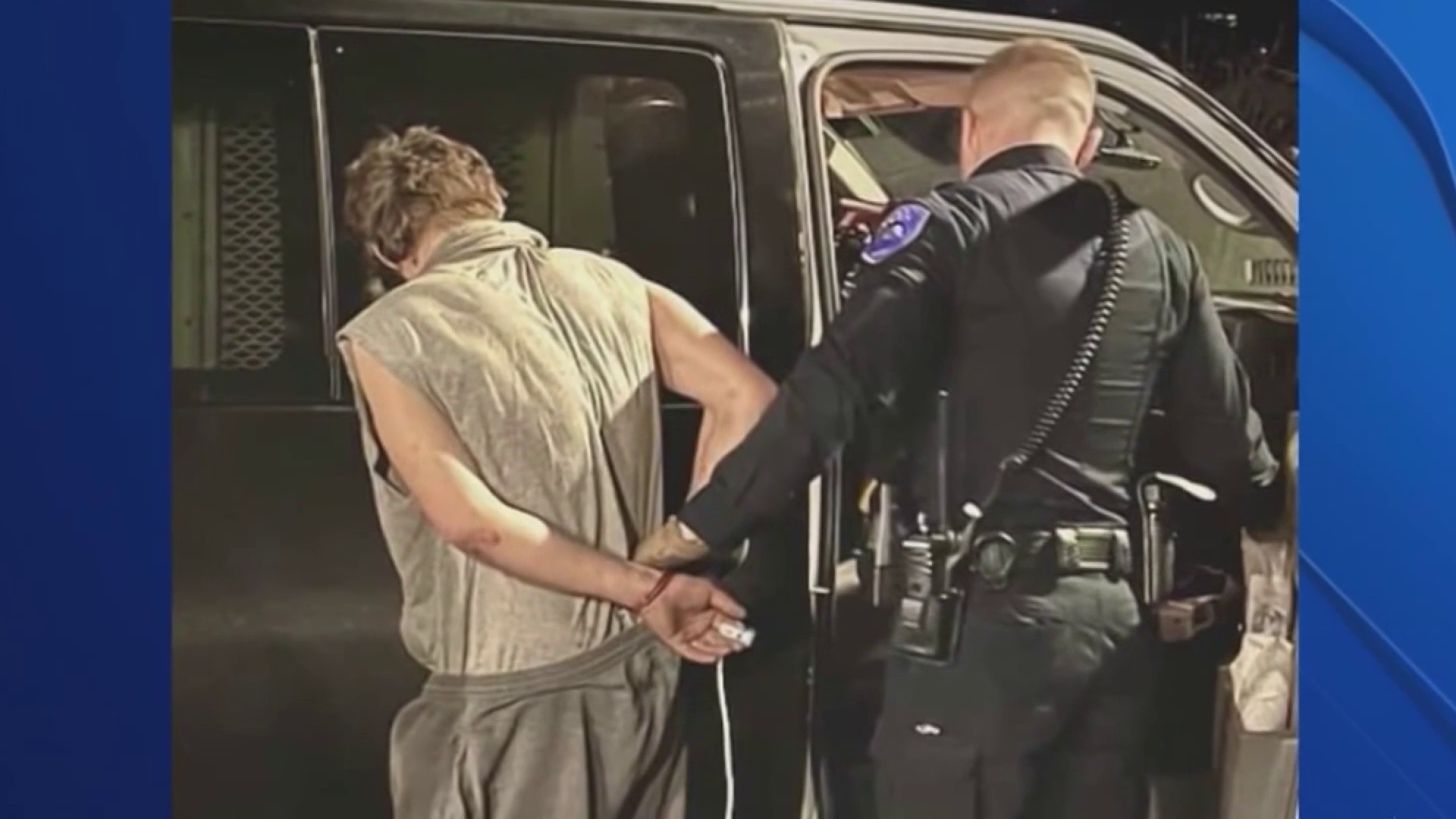
Lebanon's Hezbollah launched over 100 rockets early Sunday across a wider and deeper area of northern Israel, with some landing near the city of Haifa, as the sides appeared to be spiraling toward all-out war following months of escalating tensions.
The rocket barrage overnight set off air raid sirens across northern Israel, sending thousands of people scrambling into shelters. The Israeli military said rockets had been fired “toward civilian areas," pointing to a possible escalation after previous barrages had mainly been aimed at military targets.
Israel's Magen David Adom rescue service said it treated four people for shrapnel wounds, including a 76-year-old man who was moderately wounded in Kiryat Bialik, a community near Haifa where buildings were damaged and cars set on fire. It was not immediately clear if the damage was caused by a rocket or an Israeli interceptor.
Get top local stories in Philly delivered to you every morning. Sign up for NBC Philadelphia's News Headlines newsletter.
The barrage came after an Israeli airstrike in Beirut on Friday killed at least 37 people, including one of Hezbollah's top leaders as well as women and children. Hezbollah was already reeling from a sophisticated attack that caused thousands of personal devices to explode just days earlier.
The Israeli military said it carried out a wave of strikes across southern Lebanon over the past 24 hours, hitting some 400 militant sites, including rocket launchers. Lt. Col. Nadav Shoshani, an Israeli military spokesman, said those strikes had thwarted an even larger attack.
“Hundreds of thousands of civilians have come under fire across a lot of northern Isreal. They spent the night and now the morning in bomb shelters," he said. “Today we saw fire that was deeper into Israel than before.”
U.S. & World
Stories that affect your life across the U.S. and around the world.
In a separate development, Israeli forces raided the West Bank bureau of Al-Jazeera, which it had banned earlier this year, accusing it of serving as a mouthpiece for militant groups, allegations denied by the pan-Arab broadcaster.
Israel and Hezbollah have traded fire since the outbreak of the war in Gaza nearly a year ago, when the militant group began firing rockets in solidarity with the Palestinians and its fellow Iran-backed ally Hamas. The low-level fighting has killed dozens of people in Israel, hundreds in Lebanon, and displaced tens of thousands on both sides of the frontier.
Neither side is believed to be seeking a war. But in recent weeks, Israel has shifted its focus from Gaza to Lebanon and vowed to bring back calm to the border so that its citizens can return to their homes. Hezbollah has said it will only halt its attacks if there is a cease-fire in Gaza, which appears increasingly elusive as long-running talks led by the United States, Egypt and Qatar have repeatedly bogged down.
The war in Gaza began with Hamas' Oct. 7 attack into Israel, in which Palestinian militants killed some 1,200 people and took around 250 hostage. They are still holding around 100 captives, a third of whom are believed to be dead. Gaza's Health Ministry says over 41,000 Palestinians have been killed. It does not say how many were fighters but says women and children make up over half of the dead.
Israeli media reported that rockets fired from Lebanon early Sunday were intercepted in the areas of Haifa and Nazareth, which are further south than most of the rocket fire to date. Israel canceled school across the north, deepening the sense of crisis.
Hezbollah said it had launched dozens of Fadi 1 and Fadi 2 missiles — a new type of weapon the group had not used before — at the Ramat David airbase, southeast of Haifa, “in response to the repeated Israeli attacks that targeted various Lebanese regions and led to the fall of many civilian martyrs.”
In July, the group released a video with what it said was footage it had filmed of the base with surveillance drones.
Hezbollah has vowed to retaliate against Israel for a wave of explosions that hit pagers and walkie-talkies belonging to Hezbollah members on Tuesday and Wednesday, killing at least 37 people — including two children — and wounding around 3,000. The attacks were widely blamed on Israel, which has not confirmed or denied responsibility.
On Friday, an Israeli airstrike took down an eight-story building in a densely populated neighborhood in Beirut’s southern suburbs as Hezbollah members were meeting in the basement, according to Israel. Among those killed was Ibrahim Akil, a top Hezbollah official who commanded the group’s special forces unit, known as the Radwan Force.
Lebanon’s health minister, Firass Abiad, told reporters Saturday that at least seven women and three children were killed in Friday’s airstrike on the building. He said another 68 people were injured, including 15 who were hospitalized.
It was the deadliest strike on Beirut since the bruising monthlong war in 2006 between Israel and Hezbollah, and the casualty count could grow, with 23 people still missing, a government official said.
Israeli Defense Minister Yoav Gallant said the attack broke up the group’s chain of command while taking out Akil, who he said was responsible for Israeli deaths.
Akil had been on the U.S. most wanted list for years, with a $7 million reward, over his alleged role in the 1983 bombing of the U.S. Embassy in Beirut and the taking of American and German hostages in Lebanon during the civil war in the 1980s.



